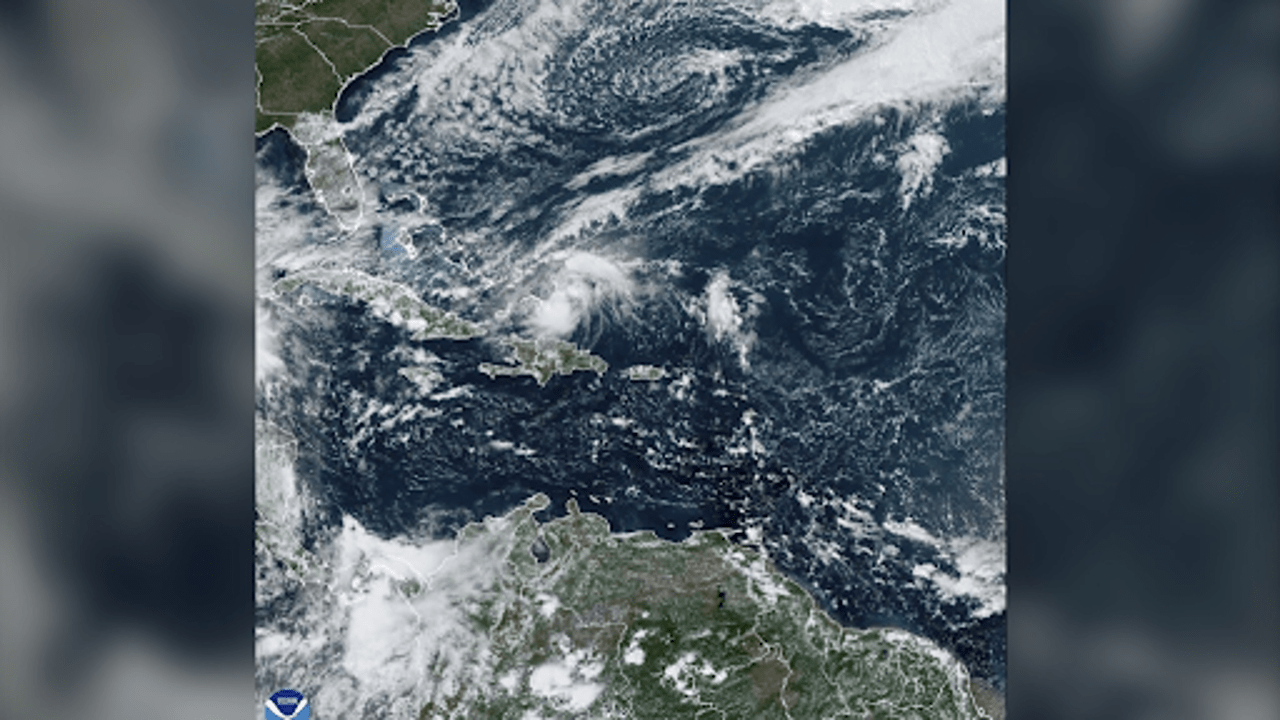
A satellite image released by NOAA on Saturday, October 19, 2024, displays Hurricane Oscar. AP Photo
Hurricane Oscar made landfall early Sunday in the southeastern Bahamas before heading towards Cuba, which is already dealing with a significant power outage. According to the National Hurricane Center in Miami, the storm's center touched down on Great Inagua Island, causing concerns about dangerous storm surges and potential coastal flooding. As the hurricane moves forward, it is expected to bring heavy rainfall, with predictions of two to four inches, and isolated areas may see up to six inches.
The storm, which developed off the Bahamas' coast on Saturday, brushed past the Turks and Caicos Islands, gaining strength as it approached land. Initially described as "tiny" by the National Hurricane Center, Hurricane Oscar prompted hurricane warnings for southeastern Bahamas and parts of Cuba on Sunday. With maximum sustained winds recorded at 80 mph (130 km/h) and stronger gusts, the storm was about 80 miles (130 kilometres) east-northeast of Guantanamo, Cuba, moving westward at 7 mph (11 kph). It was expected to reach hurricane strength as it approached the cities of Guantanamo and Holguin.
As the storm intensified, it made landfall in eastern Cuba later that evening, near the city of Baracoa in the Guantanamo province. With winds still near 80 mph (130 km/h), forecasters anticipated that Oscar would continue to impact eastern Cuba overnight and into Monday. Rainfall predictions for this region range from 6 to 12 inches (15.2 to 30.5 centimetres), with some isolated areas possibly receiving up to 18 inches (45.72 centimetres). Additionally, a storm surge of up to 3 feet (0.91 meters) could threaten parts of Cuba's northern shore.
Hurricane Oscar is expected to weaken as it passes over eastern Cuba before shifting direction toward the northeast and heading back toward the central Bahamas on Tuesday. As the storm approached, it was located about 5 miles (10 kilometres) east-southeast of Baracoa, or about 50 miles (80 kilometres) east-northeast of Guantanamo, continuing its slow movement west-southwest.
The arrival of Hurricane Oscar is particularly challenging for Cuba, which is still recovering from its worst blackout in at least two years that left millions without power for two days the previous week. While some electrical service was restored by Saturday, the storm's impact could further complicate recovery efforts.
Philippe Papin from the National Hurricane Center expressed surprise at how quickly Oscar intensified into a hurricane, noting, "Unfortunately, the system kind of snuck up a little bit on us." Meanwhile, earlier on the same day, Tropical Storm Nadine formed off the southern Caribbean coast of Mexico but quickly degenerated into a tropical depression as it moved inland.
As residents prepare for Hurricane Oscar's arrival, the focus remains on safety, recovery, and the potential impact on an already strained power grid in Cuba.















